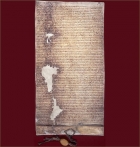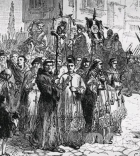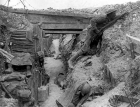Narrative in history
History teachers, academics and policy makers have often expressed concerns about the value accorded to narrative in school history, suggesting that an over-emphasis on certain concepts and processes – most obviously, causation and the critical evaluation of sources – has tended to obscure the importance of being able to put together a clear story. Constructing an effective narrative account, it has been argued, is not only an essential and demanding task in its own right and one that is fundamental to historians’ work; it is also the foundation on which other kinds of historical knowledge are built, and should therefore be more highly prized by teachers and within public examinations. Read more
-

Year 9 - Connecting past, present and future
ArticleClick to view -

Marr: magpie or marsh harrier?
ArticleClick to view -

Transforming historical understanding through scripted drama
ArticleClick to view -

Debates: Narratives - what matters most in school history education?
ArticleClick to view -

Exploring diversity at GCSE
ArticleClick to view -

Pupil-led historical enquiry: what might this actually be?
ArticleClick to view -

High achievement in history in a nutshell
ArticleClick to view -

Little Jack Horner and polite revolutionaries: putting the story back into history
ArticleClick to view -

Nutshell
ArticleClick to view -

Mussolini's marriage and a game in the playground: using analogy to help pupils understand the past
ArticleClick to view -

'If Jesus Christ were amongst them, they would deceive Him'
ArticleClick to view -

Placing history: territory, story, identity - and historical consciousness
ArticleClick to view -

Stretching the straight jacket of assessment: use of role play and practical demonstration to enrich pupils' experience of history at GCSE and beyond
ArticleClick to view -

Using this map and all your knowledge, become Bismarck
ArticleClick to view -

Nutshell
ArticleClick to view -

Narrative: the under-rated skill
ArticleClick to view -

Nutshell
ArticleClick to view -

Getting personal: making effective use of historical fiction in the history classroom.
ArticleClick to view -

'Which was more important Sir, ordinary people getting electricity or the rise of Hitler?' Using Ethel and Ernest with Year 9
ArticleClick to view -

A noisy classroom is a thinking classroom: speaking and listening in Year 7 history
ArticleClick to view

